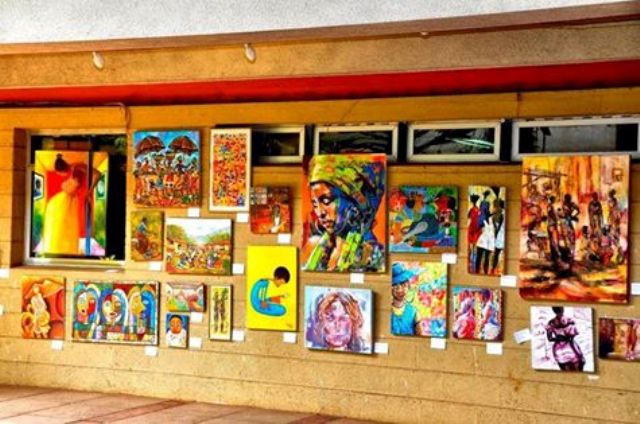African men have renounced gender-based violence as an affront to masculinity and declared an all out war on it. OGOVA ONDEGO reports.
Meeting in Nairobi during a five-day regional consultative seminar (December 6-10), the men-with white scarves around their necks and white ribbons on their coat lapels-said there can be no development, peace, social harmony, and justice as long as gender inequalities persist. The participants, meeting under the auspices of the African Women’s Development and Communications Network (FEMNET), were drawn from all walks of life in Kenya, Malawi, Namibia, Sudan and South Africa.
Njoki Wainaina of FEMNET said the need to involve men in women’s empowerment had first been articulated at the Cairo Plan of Action on Population and Development and that since then, FEMNET had targeted men as partners in her gender equality movement.
Arguing that men are usually the beneficiaries of gender inequalities, Wainaina said they “hold the key to eliminating gender-based inequalities.”
The Rev Dr Augustine Musopole, general secretary of the Malawi Council of Churches, said perpetrators of violence against women are sub-human beasts possessed with evil spirits.
“It is sub-human to be evil. To accept evil as normal to humanity is to accept a sub-human existence and to promote a culture of death,” he said in his keynote address.
He observed that inadequate personal transformation and theological reflection is leading even committed religious men to support and engage in domestic violence.
Musopole said that the introduction of human rights in Africa as a Western concept of individualism without regard to African communal rights and obligations is to blame for gender-based violence.
“People given to violence suffer from infantilism,: he said.
RELATED: KwaZulu-Natal Hosts African Renaissance Festival as National Museums of Kenya Marks 100 Years
Professors Katama Mkangi and Samson Munywoki of the Kenya-based Husband Support Group (HSG), and the Rev Dr Timothy Njoya of Men’s Equality with Women (MEW) argued that new humanistic social values and norms must be cultivated to combat gender violence.
Sociologist Mkangi and psychologist Munywoki argued that women’s striving for the male role was leading to the soaring cases of violence as men cling obstinately to their privileged role. Roles, they contented, should be based not on biological make up but on tasks.
“As creators of culture,” said Prof Mkangi, men have to develop a socialising process that equips the male and the female child with new norms and values of tolerance and which respect the complementarity and co-equality of roles of the sexes.”
Nyaradzai Gumbonzvanda, the East, Central and Horn of Africa regional director of UNIFEM, described the meeting as “a reflection of the reality that you cannot only target the victim of violence in searching solutions and in the healing process.”
She confessed that she, like many others, had at first “queried the conceptual basis of shifting resources from women to men” but that she had realised its strategic importance and embraced it.
It was reported that South Africa, Mauritius, and Namibia have legislation on gender violence and provided punishment to offenders. However, it was noted with concern, that the marital status of South African anti-violence activists as single mothers or divorcees was hampering progress as they lacked credibility; that people dismiss them as marriage wreckers.
Awareness on domestic violence, it was also reported, was high in Namibia and South Africa where authorities take active roles in sensitising communities against it.
The Namibian Prime Minister and the Minister for Education and Culture, it was said, are joint patrons of the main organisation fighting domestic violence, the Namibia Men for Change.
An albino Kenyan accused women of violating his human rights by refusing to give him dates and referring to him derogatorily as “kamuthungu” (white person).
“The psychological pain they put me through is worse than the physical one they claim to be undergoing under the hands of men,” he said.
In the debate–the only session where men met women–the former accused the latter of being their own worst enemies as they mistreat domestic female workers, underpay them and do not respect their needs for sex. That if a maid becomes pregnant she is mercilessly thrown out of the home by the female employer. They further pointed out that it is women who usually provoke men to violence.
The Rev Njoya said it was a fallacy to say that domestic violence emanates from illiteracy and poverty as, he said, he had worked in affluent Western communities where the vice was rampant despite their high education levels. He suggested that Africans should consider “abolishing the current system and replacing it with new social relationships.”
Prof Mkangi concurred and urged Africans to go back to their pre-colonial values based on age groups and roles
“It was from this premise that we at the United States International University formed the Husband Support Group in 1998 to come up with strategies to protect families from militant Western feminism that is threatening to tear them apart,” he observed.
Denying that his is a covert anti-woman organisation, Mkangi said family break-up in Africa could be catastrophic as the supportive extended family network has disintegrated while most African states have no welfare systems.
The Kenyan participants set up a working committee to stop the violence that Dr Njoya said is “negating man instead of affirming him.”




